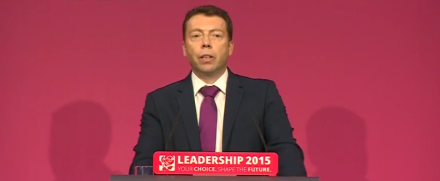
Following Iain McNicol’s resignation, a number of activists on the Left of the Labour Party have called for the next general secretary to be “democratically elected”.
The system will not be changed in time for the selection (or election) of the next general secretary, who is set to be swiftly appointed by Labour’s national executive committee on 20th March. But under Corbyn such a reform could be undertaken further down the road.
The general secretary is currently an appointed official, a servant of the party, who performs a role with an enormous amount of responsibility attached. Their job is to implement the rules as they are, so it is essential that the general secretary has a firm grasp of them and resolves to apply them fairly.
However, the party rulebook is unclear. Every active member knows that; every CLP Chair is acutely aware of it, often having to consult Citrine or seek counsel from the officials at ‘region’ to fill in the gaps. That lack of clarity is where politics and factionalism come in.
Recently, a National Policy Forum meeting was dominated by a row over whether seven days’ notice is required for party elections. The rule was cited by NEC officers as their reason for calling off the NPF chair election shortly before it was due to take place. Whether the rule should have been applied in that situation, or had been consistently applied in the recent past, remains an area of contention.
The involvement of the general secretary in such situations was shown during the 2016 leadership election, when there was a battle over whether Jeremy Corbyn as the incumbent would be automatically on the ballot paper or have to be nominated by 20 per cent of the PLP and EPL combined. There was also the issue of an early freeze date being set by the NEC, a decision for which McNicol has been held responsible.
Calls for the general secretary to be “democratically elected” must be seen in the context of such circumstances, where their political predispositions may be decisive. It is clear that many members are furious with the positions taken by McNicol in these disputes.
One such member is Aaron Bastani, co-founder of Novara Media, who argues that the general secretary should be elected so that the party can “live up to those principles which has Labour polling at 43 per cent”. Fellow proponents of the reform emphasise the importance of accountability and a strong mandate.
But there are those who believe an election would be a distraction. “Those supporting direct election for the general secretary will live to regret it,” says Richard Angell, director of centrist group Progress. “The idea the general secretary has their own mandate would create an alternative power base, not a focus on getting Labour into power.”
Angell suggests it would also be inappropriate to elect someone whose primary duty is “to ensure the party is compliant with elections law”.
We must consider accountability to the membership. But it is possible that a directly elected general secretary would only exacerbate the original problem of the role being overly political. Perhaps it is time to clarify Labour’s rulebook instead.



More from LabourList
Humza Yousaf woes deepen as Labour files no-confidence vote in government
‘History and poll leads suggest Labour can be bolder, even if it costs some votes’
Labour warned ‘ethical foreign policy’ inevitably sparks charge of ‘hypocrisy’